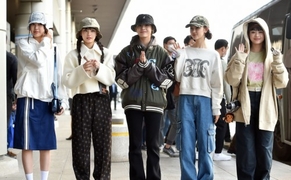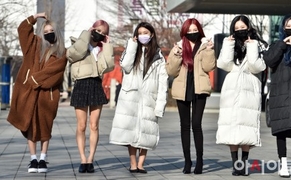 |
| Gahng Tae-jong, chief of the Korea Institute for Curriculum and Evaluation (KICE), leaves a briefing room after announcing his resignation during a press conference at the government complex in Sejong, South Korea, on Dec. 15, 2021./ Source: Yonhap |
AsiaToday reporters Lee Seung-wook & Lee Min-young
A court on Wednesday ruled that a bioscience question in this year’s college entrance exam had errors and ordered the state-run agency responsible for producing the test to cancel its designated answer.
Following the ruling, the test’s makers said that it’s not going to appeal and allow the question be counted as correct for everyone. The head of the agency issued an apology over the question controversy and offered to resign. However, the overall credibility of the current college entrance exam system was severely hit by the question controversy.
Besides, the ruling is expected to particularly affect those in the highest of the test’s tiers, usually aiming for med school or dentistry.
The Seoul Administrative Court ruled in favor of 92 examinees disputing question No. 20 of the bioscience part 2 section of this year’s College Scholastic Ability Test (CSAT) developed by the Korea Institute for Curriculum and Evaluation (KICE). As plaintiffs, 92 test takers pointed out to the court that there was no right answer, and the court agreed.
The court ruled that the flawed question essentially forced students to “choose an answer while neglecting principles of bioscience.”
“The question is unable to function for a college entrance exam,” the court said.
KICE insisted last month that the question, while not perfect, was valid. Last week, the court ordered the agency to suspend the validity of the question until the suit was settled.
Acknowledging the error in the exam, KICE President Gahng Tae-jong announced his intention to resign. However, many point out that flaws of the CSAT system have been exposed.
“We humbly accept the court’s ruling and feel heavy responsibility,” Gahng said in a briefing held immediately after the ruling was made. “I apologize to all the people, including the students, parents and teachers.”
KICE stated that it would not appeal to a higher court, accepting the court ruling. It also provided test results of test-takers Wednesday at 6 p.m. after making the controversial question correct. “The college entrance schedule is tight and it has already been delayed due to the lawsuit. We will not appeal to a higher court as we would not want to cause any more damage to test-takers and their parents,” Kim Dong-young, an official from KICE, said at a press briefing held in Sejong.
Many point out that the general system of the exam needs to be improved. Initially, KICE had not accepted complaints filed by some test-takers concerning the question. In response to the complaints, the institute had said, “Though the conditions provided in the question may not be ideal, it is still appropriate for evaluating academic attainment.”
KICE came under fire for causing great confusion to test-takers. As all test-takers’ answers for the question have now been marked “right,” experts say the ruling will affect many top-ranked students aiming for med schools or top universities including Seoul National University.
Some 6,515 examinees, 1.5 percent f the total test-takers for the college entrance test this year, took the bioscience part of the exam. However, many top-ranked test-takers applying for med schools or dentistry chose to take this particular subject area, bioscience section two. As there are even universities that give extra points for the subject, and it may have an effect on the selection of a related major.
According to Jongno Academy, one of the country’s biggest exam prep academies, said the standard score is expected to drop by about one point due to KICE’s recognition of mistake. “As the level of difficulty of science area has raised, there may be disadvantages compared to students who have chosen other subjects,” said Im Sung-ho, chief of Jongno Academy.
#court #bioscience #College Scholastic Ability Test #Korea Institute for Curriculum and Evaluation
Copyright by Asiatoday
Most Read
-
1
-
2
-
3
-
4
-
5
-
6
-
7





















